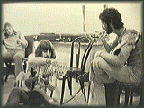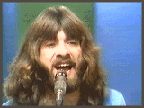Ethan25
Super Member
I have had several people ask me to do this thread, and until we have a biography category of some sort, I will just post it here as that's where I was encouraged to post.
I know many of you have wondered what my fascination is with Phil Keaggy - some of you don't wonder as you also find his music to be quite remarkable. The purpose of this thread is to get you acquainted with Phil's music and provide a list of what he has out there for those interested. I will do my best to provide this in a chronological sequence the best I can. My plan is to post one album per post and share the release date, what label it was produced by, and a song or two from the album if it is available through youtube. I am not going to set a time limit on the thread to finish, as I don't have internet at home and will have to do this on my break while at work.
Please by all means reply and ask questions. I am not concerned with having all 100 (or thereabouts) posts in some sort of immediate sequential order in the thread. Phil, while somewhat famous, is rather not famous considering his extensive catalog and amazing abilities, at least in my opinion. So, please be patient with me as I get this done in my spare time. I do not intend to focus on his religious beliefs, although those come through in his music (along with Bob Marley's, Nirvana's, and others). Sit back, relax, and enjoy!

I know many of you have wondered what my fascination is with Phil Keaggy - some of you don't wonder as you also find his music to be quite remarkable. The purpose of this thread is to get you acquainted with Phil's music and provide a list of what he has out there for those interested. I will do my best to provide this in a chronological sequence the best I can. My plan is to post one album per post and share the release date, what label it was produced by, and a song or two from the album if it is available through youtube. I am not going to set a time limit on the thread to finish, as I don't have internet at home and will have to do this on my break while at work.
Please by all means reply and ask questions. I am not concerned with having all 100 (or thereabouts) posts in some sort of immediate sequential order in the thread. Phil, while somewhat famous, is rather not famous considering his extensive catalog and amazing abilities, at least in my opinion. So, please be patient with me as I get this done in my spare time. I do not intend to focus on his religious beliefs, although those come through in his music (along with Bob Marley's, Nirvana's, and others). Sit back, relax, and enjoy!

Last edited:










